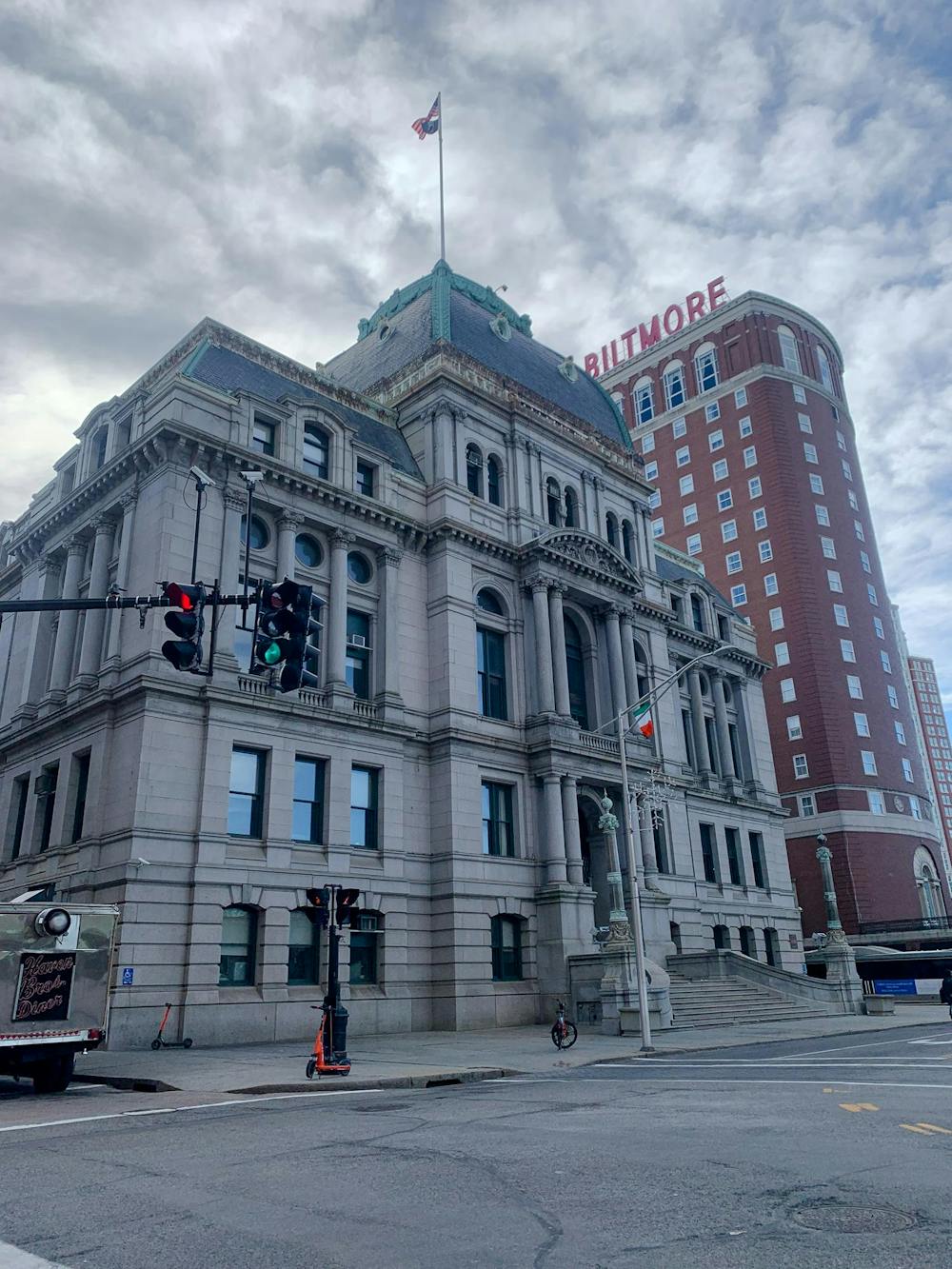The Providence City Council Committee on Finance did not vote on two proposed voluntary payment agreements between the city and four private higher education institutions at a committee meeting Tuesday evening. The meeting will be continued at a later date, with a public hearing scheduled for Sept. 26.
The proposed agreements were announced Sept. 5, with a memorandum of understanding between the city and four private colleges and universities — Brown, Johnson and Wales University, Providence College and the Rhode Island School of Design — and a memorandum of agreement between only Brown and the city, The Herald previously reported. At the meeting, the Finance Committee heard from members of Mayor Brett Smiley’s administration about the proposals.
Providence Chief Operating Officer Courtney Hawkins presented details of the proposed MOU and MOA. Alongside City Solicitor Jeff Dana and Chief Financial Officer Lawrence Mancini, she then fielded questions from the Finance Committee and other attendees. According to Hawkins, the voluntary payments of the proposed new agreements are more than double the payments of the city’s previous voluntary payment agreements, signed in 2003 and 2012.
Hawkins detailed three key priorities of the city during the negotiation process: ensuring that institutions provided significantly more financial support to Providence over the term of the agreement, setting a new model for agreements between institutions and cities surrounding voluntary payments and respecting the economic challenges and priorities of institutional partners.
Attendees raised concerns about the time frame of the agreement restricting future administrations — as well as provisions regarding property acquisition and zoning.
One of the administration’s goals in creating a 20-year agreement was to try to “set up future administrations with guaranteed funding,” Hawkins said. Additionally, the street acquisitions by Brown included in the MOA — one block on College Hill and four blocks in the Jewelry District — would need to go through the City Council and City Plan Commission and are not guaranteed under the agreement, she added.
“Any plans will go through appropriate city processes and consultation with the neighborhood,” said Executive Vice President of Planning and Policy Russell Carey ’91 MA’06.
According to Carey, although a 2012 MOA between the University and Providence also included property acquisition by the University, only one of the three blocks — Olive Street — became a private road. The other two remained public streets.
Two blocks on Richmond Street between Ship and South streets — one of the three proposed acquisitions in the new agreement — are adjacent to the University’s planned integrated life sciences building in the Jewelry District. The area will need to close at least temporarily due to construction, Carey said. If their acquisition is approved, the University hopes to make the space a public green space, given the lack of such spaces in the Jewelry District, he added. Plans for the other two blocks in the Jewelry District have not yet been developed.
“I think this has been a very robust process, and I think this agreement is incredibly positive for the city,” said Councilor John Goncalves ’13 MA’15. But he expressed concern about the proposed extension of the I-2 Zone, which offers special zoning for educational institutional districts, under the MOA, citing neighborhood concerns regarding the Brook Street dorms that were “rejected” by the University, though the University did decrease the height and scale of the projects after community feedback.
Both Councilors Shelley Peterson and Miguel Sanchez voiced concerns about “binding future councils” to the agreements. “Not being able to advocate for more financial contributions (from institutions)” is “not fair to the residents of the community,” Peterson said.
In response, Dana described the nature of the agreements in requiring shared understanding between parties, adding that if payments from the colleges stop, the city is likewise not required to fulfill its obligations.
Peterson also expressed concern about the potential loss of tax revenue due to the sale of city property to institutions, particularly without a system of transitional payments as under the 2003 MOU, and proposed adding another transitional payment clause.

Rhea Rasquinha is a Metro editor covering development and infrastructure. She also serves as the co-chief of illustrations. She previously covered College Hill, Fox Point and the Jewelry District. Rhea is a senior from New York studying Biomedical Engineering.





